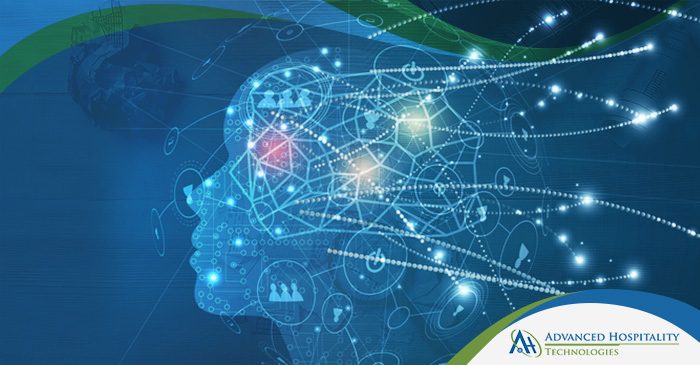Introduction
The hospitality industry thrives on the human connection and customer experience. However, technology plays an increasingly crucial role in enhancing convenience, personalization, automation and more for hotel guests and staff. When leveraged correctly, hotel technology modernizes processes to reduce costs and drive revenue. However, many owners and operators struggle with effectively implementing new systems. Without proper planning, training and consideration of the human element, technology upgrades frequently fail to deliver projected ROI leading to guest and staff frustrations. This blog will examine key mistakes hoteliers make with technology and provide advice on avoiding common pitfalls.
Choosing Technology for Technology’s Sake
In the race to match or beat competitors, it’s tempting for hotel owners to choose software, apps, and systems focused more on buzzword compliance or trendiness over solving an actual business need. Implementing technology without a clear goal or problem to address is a recipe for wasted budgets and poor adoption. Before investing in any new tech, hoteliers should step back and assess current pain points and friction—where do manual processes fail guests and staff? How can automation boost experiences and productivity? What metrics need improving? Only after defining clear objectives, use technology to map the ideal guest journey and improve weak spots.
Insufficient Planning and Budgeting
Once relevant business needs and customer pain points are uncovered, many owners fail to properly plan and budget for the technical requirements, maintenance and staff training involved in a successful technology rollout. Most solutions require servers, updated Wi-Fi, electrical, structured cabling and devices to handle increased capacity, which hotel infrastructure is often unprepared for post-install. By partnering early with IT staff to audit current bandwidth, connectivity, power reliability etc. hotels can budget for necessary upgrades to avoid operation failures after launching technology. Allocating funds for ongoing audits & maintenance as well as initial and continuing staff education ensures system continuity and adoption.
Ignoring Data Security
Another grave and costly mistake hoteliers make is ignoring or downplaying data security when evaluating and implementing new systems, especially cloud-based SaaS platforms. In the race to capitalize on guest data for personalization and marketing, proper encryption, and compliance with security standards like PCI DSS often get short shrift. This leads to leaked guest information and costly fines in data breaches. From the start, conduct in-depth reviews of vendor security provisions for transmission, storage, and policies. Verify partners are vigilantly testing for threats and training staff on best practices. Though ensuring safety of personal and financial data may not generate revenue, it undoubtedly builds invaluable trust and peace of mind.
Poor or No Staff Training
Even brilliant, convenient software fails if the staff tasked with managing and troubleshooting it remain untrained. Employees accustomed to legacy systems need ample onboarding, education, and training to adapt. When shifting from manual approaches to tech-enabled ones, provide reassurance and guidance on new procedures. Without addressing fears around job security and highlighting benefits of elevated roles and career growth, adoption stays stubbornly low. Develop training programs focused on building confidence first before skills and allocate resources. Appoint department power users to provide peer assistance. Follow up regularly with assessments and refreshers to support changing systems.
Forgetting the Human Element
For as long as hotels have existed, in-person hospitality from staff has remained the cornerstone of memorable stays. When implementing any technology, owners that lose sight of enhancing human connections rather than replacing them obtain poor returns. Evaluate every guest and employee touchpoint experience. Is self-service always optimal or should staff interaction be emphasized? Leverage data and AI to build better relationships, not limit them. Technology that helps employees to better inform, assist and know customers drives higher satisfaction all around, strengthening the heart of hospitality.
Assuming Automatic ROI
Technology cannot automatically drive revenues simply by existing. Hotel owners often invest in solutions without accurately projecting costs, defining metrics and tracking ongoing impact. They assume implementing a popular platform guarantees commensurate financial returns. However, without monitoring KPIs pre-launch and post-launch to quantify changes in Conversion, RevPAR, guest experience etc. and link specifically to a technology itself, the actual ROI gets credited elsewhere or underestimated. Tie technology capabilities to revenue-generation strategies and measure incrementally to prove true value.
Failure to Gather Feedback
Finally, a primary downfall of technology executions happens when hotel operators fail to gather ongoing feedback on implemented solutions. Without input from regular users on efficacy, convenience, frustrations and desired improvements, even game-changing innovations flounder and become outdated as problems compound. Build mechanisms to track key metrics on usage, performance, and user sentiment frequently after launching new software, devices, or systems. Be ready to tweak, improve or even replace technology that fails to meet expectations. In hospitality, guest and staff needs evolve continually and keeping pace necessitates taking the pulse to respond appropriately.
Conclusion
Getting cutting-edge technology right fuels hospitality success while improper implementations hamper it. Avoiding common mistakes around planning, security, training and forgetting hospitality’s chief purpose—deepening human connections—leads hotels to build the leading-edge guest experiences that foster loyalty and drive revenues today. Remember, technology enables but people truly matter. Approach innovations through that balanced lens for sustainable adoption and ROI.


